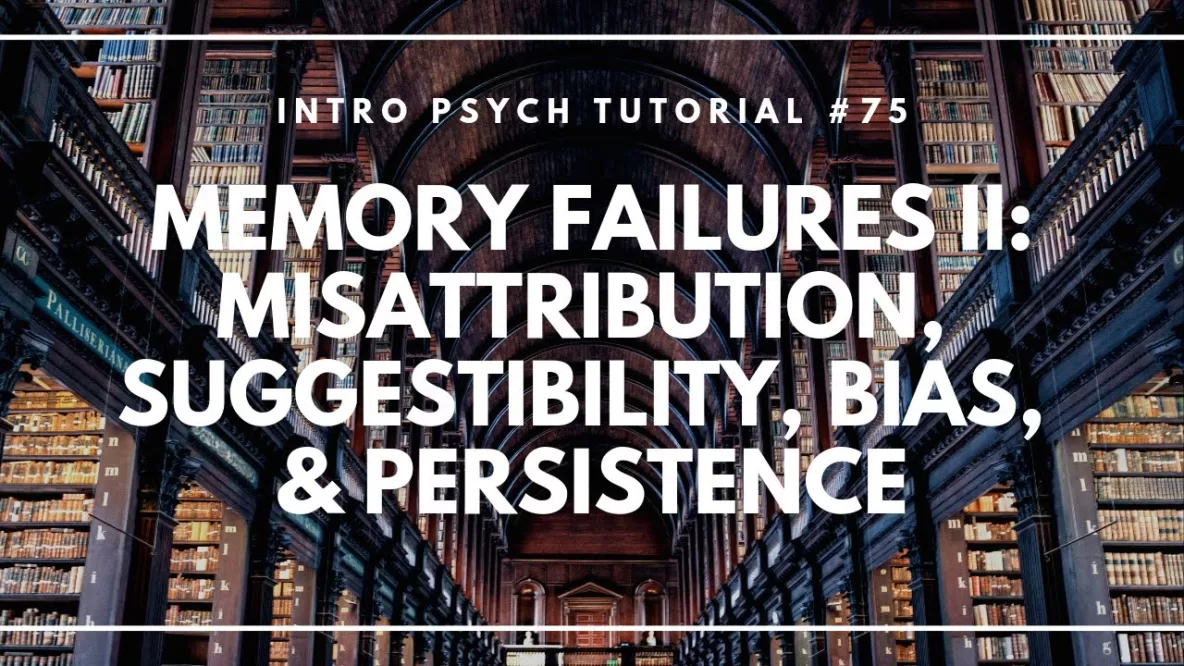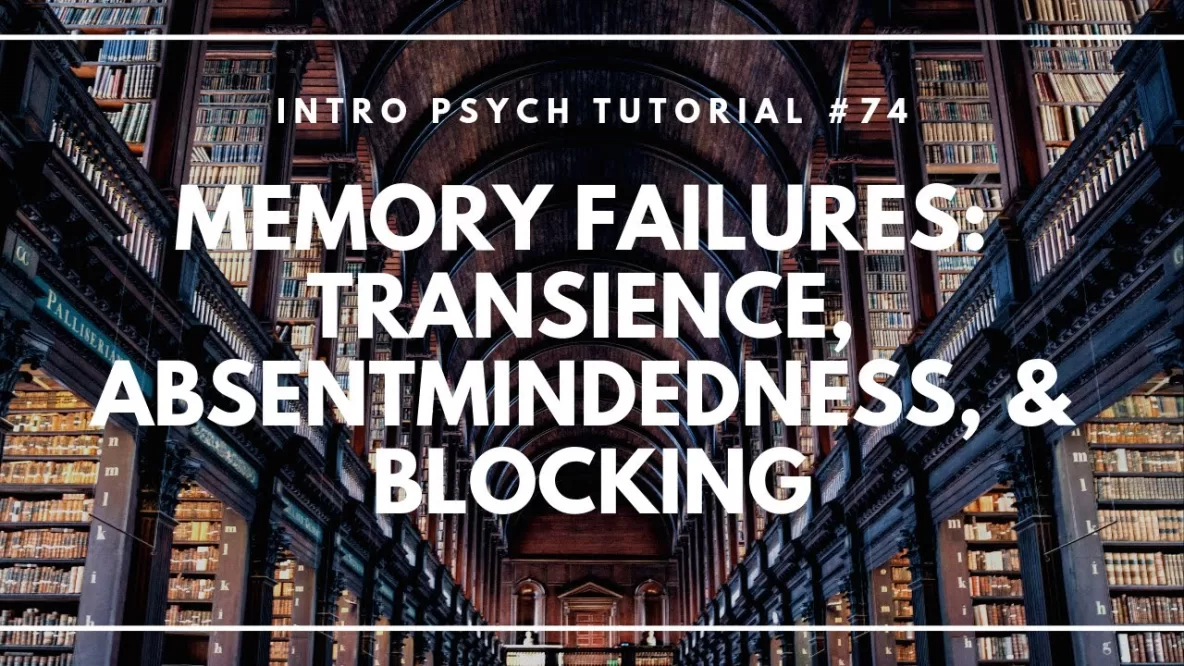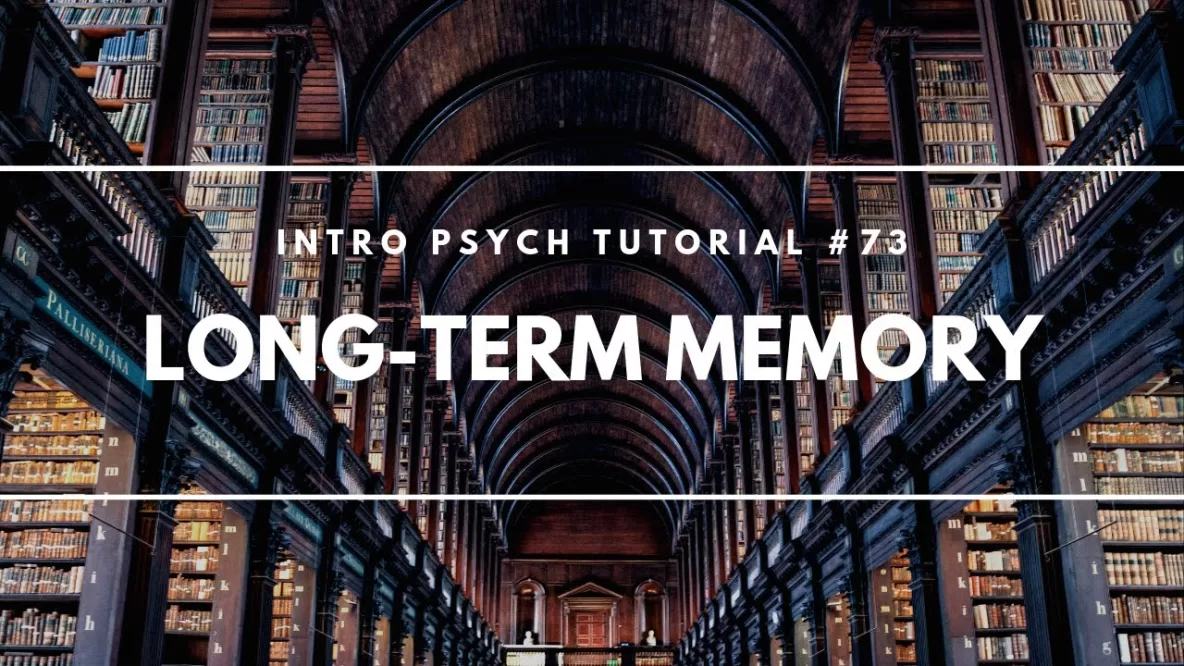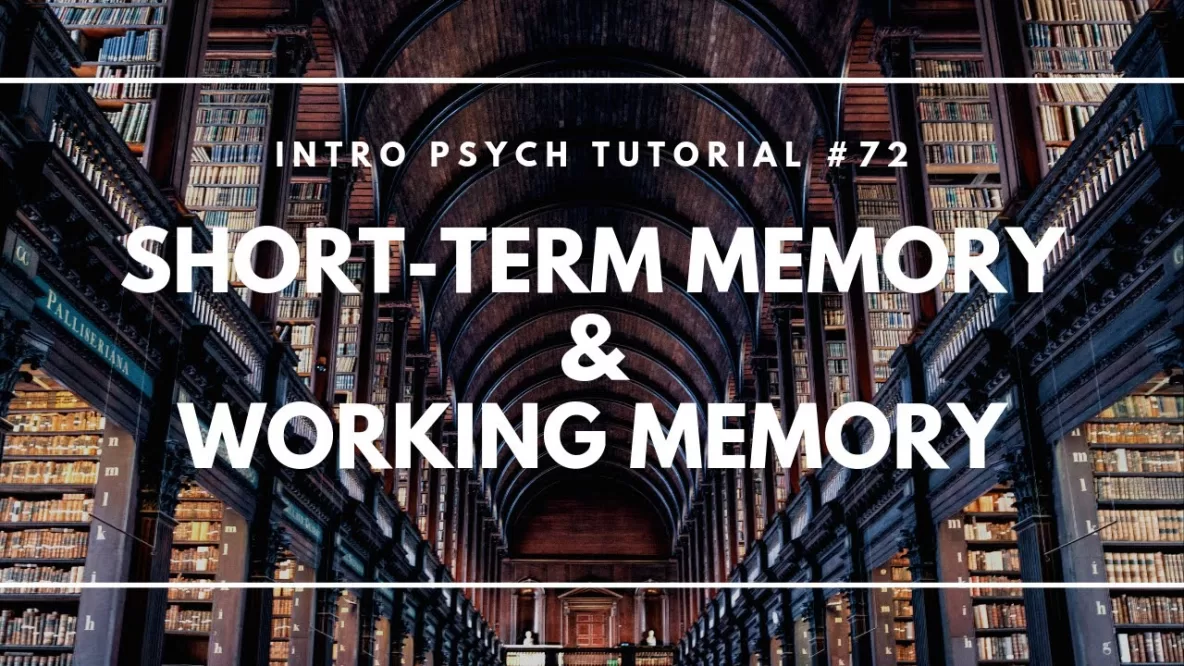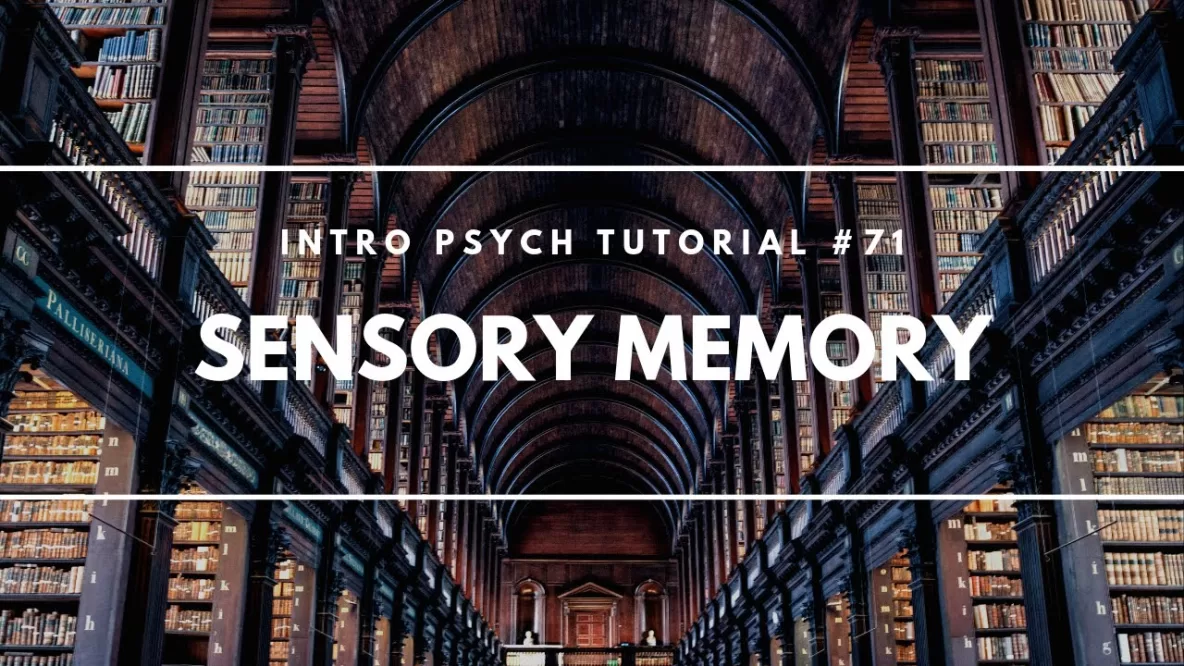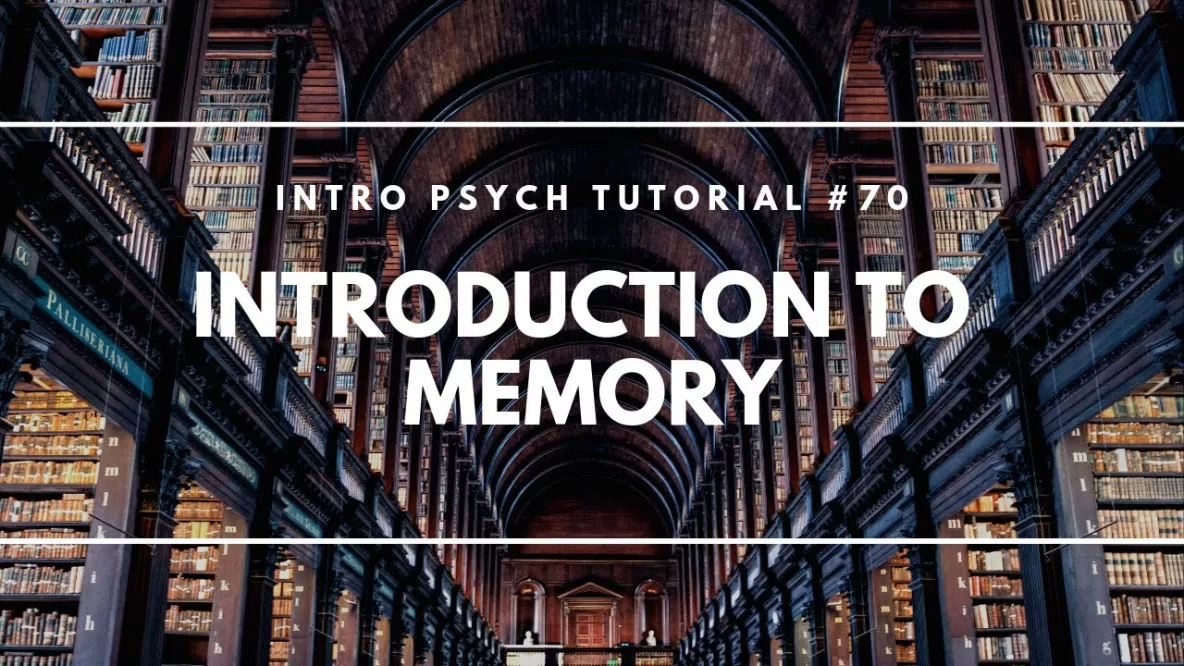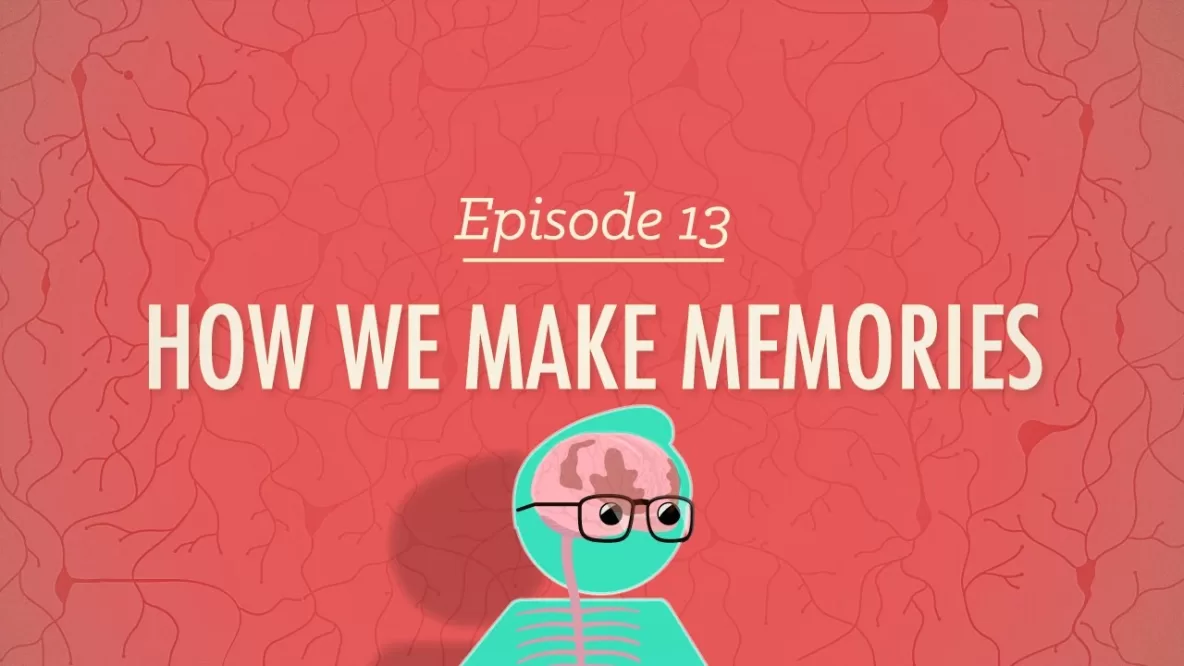In this video I explain the 4 remaining “sins” of memory from Daniel Schacter’s list. Misattribution refers to incorrectly identifying the source of a memory and relates to false recognition, deja vu, and cryptomnesia. Suggestibility is the idea that our … Read More
Memory Failures: Transience, Absentmindedness, & Blocking
In this video I introduce 3 common memory failures from Daniel Schacter’s list of the “seven sins” of memory. Transience refers to forgetting due to the passage of time and follows a “forgetting curve” researched by Hermann Ebbinghaus. Absentmindedness refers … Read More
Long-Term Memory
In this video I cover the final box in the 3-box model of memory, long-term memory. Long-term memory is generally considered to have an unlimited capacity and thus is never “full”. I explain different types of long-term memory which can … Read More
Short-Term Memory & Working Memory
In this video I cover the second box in the 3-box model, short-term memory, in greater detail. I explain the limited capacity of this store, George Miller’s “Magical Number 7”, and how organizational encoding and chunking may appear to expand … Read More
The Sensory Memory Store
In this video I cover the first box in the 3-box model, sensory memory, in greater detail. I explain how this store refers to information from all of the senses, though individual senses can be specified using terms like iconic … Read More
Introduction to Memory
In this video I begin the memory unit by introducing a few key terms (encoding, storage, and retrieval), explaining why it’s important not to extend the “mind as computer” analogy too far, and briefly outlining the 3-Box model of memory … Read More
Olfaction: Sense of Smell
In this video I explain the process of transduction for scent; how odorant molecules in the air can trigger different olfactory receptor neurons which then send messages to the rhinencephalon or “nose brain”. I mention the links between scent, emotion, … Read More
What is the Availability Heuristic?
In their first study of the availability heuristic, Tversky and Kahneman asked participants to estimate whether English had more words that started with the letter K or more words that had K as the third letter. What do you think? … Read More
How Does Memory Work?
Why do we remember some things and not others? How much can we remember and how long can our memories last? What processes shape our memory of the world? Memories are a fundamental part of who we are, so it’s … Read More
Memory Resources
On this page you’ll find a number of resources for understanding the key concepts of memory, including types of memory, memory failures, mnemonics, and more. If I’ve missed a good resource, please share it in the comments section! General Resources Memory … Read More

